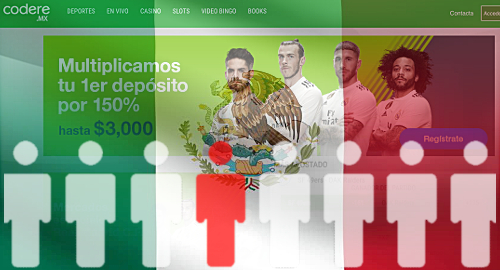 Mexico’s online gamblers are about as rare as unicorns, according to the results of a new market survey.
Mexico’s online gamblers are about as rare as unicorns, according to the results of a new market survey.
Last week saw the release of a new survey of the perception of gambling in Mexican society. Of Luck, Gambling and Other Hazards was published by the Universidad Nacional Autónoma de México’s Institute of Legal Research in conjunction with the (recently disbanded) Codere Foundation.
Among some of the report’s more interesting findings is that over 85% of those surveyed either disagreed or strongly disagreed with the phrases ‘gambling is for lazy people’ or ‘gambling is a sin.’ Despite this lack of stigma surrounding gambling, the survey found that only 21% of respondents reported participating in gambling versus over 78% who didn’t.
Incredibly, a mere 0.8% of respondents reported having an account with an online gambling site, making online the lowest ranked form of gambling included in the study. Those who do gamble online are predominantly in the 25-34 age demo, hold either a bachelor’s or post-graduate degree, and generally earn a higher income than most Mexicans.
One might suspect many more respondents are active online gamblers but simply don’t want to admit that their site of choice is based outside the country and doesn’t hold a local license. However, local industry figures have claimed that less than half of Mexicans who have internet access also have a valid bank card, so…
Mexico’s land-based casino operators aren’t exactly getting rich off the nation’s apparent aversion to online gambling, as only 16.4% of the survey’s respondents reported visiting a Mexican casino. (Perhaps it’s the bomb threats or the occasional hyper-violent attacks by local cartels.)
The most popular forms of gambling games are those that can be played at home with family or friends. National lotteries ranked second, followed by the low-denomination slot machines that have become increasingly ubiquitous in small retailers. Casinos and bingo halls ranked fourth, followed by various forms of sports and race betting.
Mexico’s archaic gambling laws, which haven’t been updated since 1947, have been blamed for the lack of international operator interest in setting up shop in this sizable but inhospitable market.





